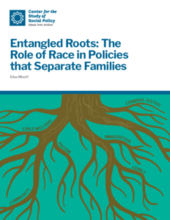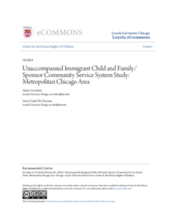Displaying 1341 - 1350 of 2503
The current study examined how discrimination relates to adjustment outcomes in a sample of internationally, transracially adopted Korean Americans from the Minnesota Sibling Interaction and Behavior Study.
This qualitative study examines the academic pathways of 33 college students with a history or foster care placement, homelessness, or both, to better understand the ways in which forms of social capital influence the transition to college and early college experiences in the US.
The purpose of this study was to assess vaccine coverage for a cohort of children who have been in the care of the child welfare system compared to children in the general population in Alberta, Canada.
By examining the roots of policies that separate families and their entanglement with racial prejudice and discrimination, this report makes the case that we must embrace an alternative path.
This report presents findings from a research project to (1) address the knowledge gap on children who are unaccompanied immigrants1 (“CUI”), with its focus on the Chicago metropolitan area, and (2) provide relevant information to stakeholders who can strengthen the systems that support these young people.
This paper documents findings from an evaluation of the Live-In Family Enhancement (LIFE) program, and recommends that this approach be expanded for use in prevention as well as reunification.
The objective of this study was to identify different kin and fictive kin network support profiles available to children in foster care and examine whether these profiles predict behavioral outcomes.
This study evaluates whether the psychometric properties of the Pediatric Symptoms Checklist-17 (PSC-17), a common behavioral health measure typically used as a dichotomous screening tool for mental health needs, support its use as a continuous measure for tracking behavioral health over time.
This paper explores the literature of the existing interventions that are specifically used with American Indian families affected by child abuse and neglect.
The purpose of the current study was to explore how adolescent mothers experienced pregnancy and parenthood within the context of residential foster care.



